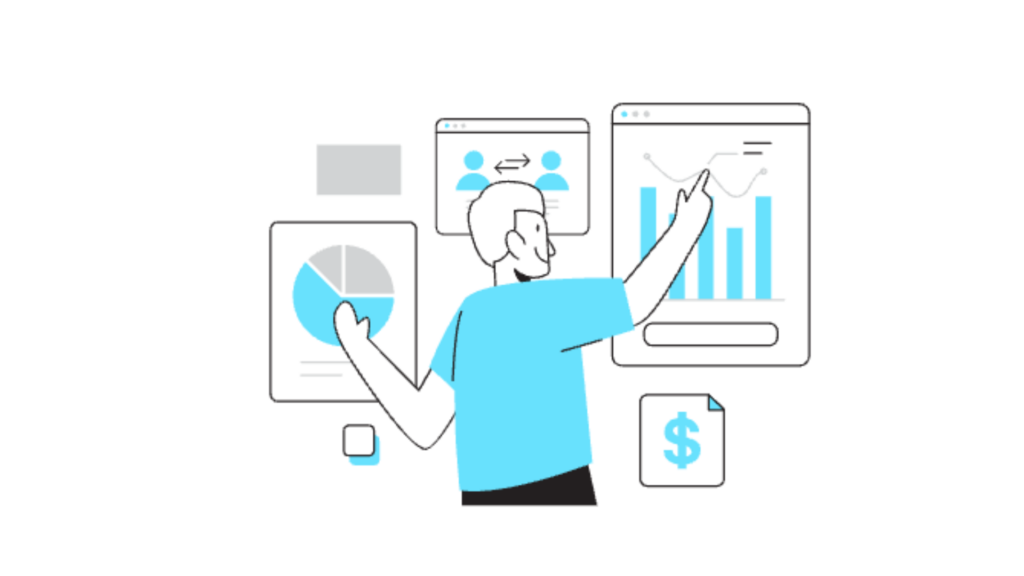Shopper Marketing Agency: A Comprehensive Guide to Boosting Retail Success

In today’s competitive retail environment, a shopper marketing agency plays an essential role in bridging the gap between brands and consumers by directly influencing purchasing behavior. A shopper marketing agency specializes in creating targeted strategies that engage customers, enhance their in-store experience, and ultimately drive sales. Whether you’re a new brand looking to enter the retail space or an established company seeking to maximize retail impact, partnering with a shopper marketing agency can be the key to effective consumer engagement and sustained growth.
What is a Shopper Marketing Agency?
A shopper marketing agency focuses on the strategies and tactics that influence a consumer’s decision to purchase in a retail setting. Unlike traditional marketing, which builds brand awareness and creates demand, shopper marketing is about driving action right at the point of sale. This can involve anything from in-store displays and digital interactions to promotions tailored to specific shopper behaviors.
Shopper marketing agencies take into account the consumer’s journey—from the initial product discovery phase to the final decision-making point—developing a deep understanding of how to effectively target and engage shoppers within the retail space.
For a closer look at the benefits of such targeted strategies, consider reading our guide on marketing integrations, which highlights how businesses can enhance customer experiences by combining various marketing approaches.
Key Benefits of Working with a Shopper Marketing Agency
Collaborating with a shopper marketing agency offers brands a number of advantages. Here are the primary benefits:
- In-Depth Shopper Insights: A specialized agency provides detailed insights into shopper behavior, enabling brands to develop precise marketing strategies based on actual purchasing behavior.
- Customized In-Store Experiences: By focusing on in-store touchpoints, agencies help create customized shopping experiences that resonate with target audiences.
- Better ROI: Shopper marketing efforts are tailored to boost in-store conversions, often delivering a high return on investment.
- Innovative Campaigns: A shopper marketing agency can leverage new technologies and trends to create engaging, innovative campaigns that captivate customers.
For more ways on improving customer interactions, see our article on enhancing customer experience in the financial sector, which provides insights that can apply to a wide range of industries.
How a Shopper Marketing Agency Operates: Key Tactics and Strategies
A shopper marketing agency employs various tactics to capture attention, encourage engagement, and increase sales. Below are some of the most common approaches.
In-Store Promotions
One of the primary tactics is in-store promotions. Promotions like discounts, limited-time offers, and bundled deals motivate shoppers to make immediate purchases. These tactics make products more enticing and increase the likelihood of impulse buying.
Digital Integration
With the rise of digital technology, shopper marketing agencies also focus on integrating digital elements into in-store experiences. This can include everything from interactive kiosks to generating QR codes that link shoppers to product reviews and additional information. Digital integration helps engage tech-savvy consumers and provides additional value right at the point of sale.
Branded Displays
Branded displays are designed to catch the shopper’s eye and provide relevant information on the spot. They’re particularly effective for new product launches, helping to make the product memorable and easily accessible. Branded displays can come in various forms, from end caps and shelf talkers to full-blown in-aisle displays. Suppose a shopkeeper has a business cards made in such a way that it’s brand gets highlighted through that will create a lot of visibility. If you want to create such business cards, Uniqode’s business cards is one amongst the best options there.
For additional tips on branding, explore our article on creating effective marketing displays, which covers visual techniques that help brands capture attention.
Common Mistakes to Avoid in Shopper Marketing
While working with a shopper marketing agency can be highly beneficial, it’s essential to avoid common pitfalls that may hinder campaign success. Here are some frequent mistakes and how to sidestep them.
- Overloading the Shopper with Information: Too much information can overwhelm shoppers and make them less likely to act. Focus on clear, concise messaging that communicates essential details.
- Ignoring Digital Elements: In a digital-driven world, neglecting online elements can limit your marketing reach. Ensure that your campaigns incorporate both physical and digital elements to engage shoppers on multiple fronts.
- Lack of Consistent Branding: Inconsistent branding across campaigns can lead to confusion. Maintain cohesive visual and messaging elements across all promotional materials to build strong brand recognition.
Future Trends in Shopper Marketing
The retail landscape is evolving, and shopper marketing agencies are continuously adapting to stay relevant. Here are some emerging trends shaping the future of shopper marketing:
1. Personalization through Data Analytics
Agencies are increasingly leveraging data analytics to tailor experiences based on individual shopper preferences. From customized offers to personalized product recommendations, data-driven personalization enhances customer engagement.
2. Sustainable In-Store Marketing
As consumers grow more environmentally conscious, many agencies are moving toward sustainable materials for in-store displays and promotions. Brands that align with eco-friendly practices can appeal to a growing segment of eco-conscious shoppers.
3. Augmented Reality (AR) Experiences
AR technology is beginning to play a role in shopper marketing, allowing customers to visualize products in real-time. For instance, shoppers could use their smartphones to see how a piece of furniture would look in their home. This innovative approach enhances the shopping experience and reduces uncertainty about purchases.
For more on emerging technology in marketing, check out our article on harnessing AI in marketing.
Shopper Marketing Agency vs. Traditional Advertising Agency
While both types of agencies aim to enhance brand awareness and drive sales, there are notable differences between a shopper marketing agency and a traditional advertising agency. Here’s a quick comparison:
| Aspect | Shopper Marketing Agency | Traditional Advertising Agency |
|---|---|---|
| Focus | Point-of-sale engagement | Brand awareness and mass-market reach |
| Strategy | Tactical campaigns targeting in-store and digital touchpoints | Generalized campaigns through TV, radio, and digital |
| Measurement of Success | In-store conversions and sales lift | Reach, impressions, and brand recall |
| Typical Marketing Tools | In-store displays, digital integration, branded promotions | TV ads, print media, digital ads, billboards |
If you’re curious about the best tactics for overall brand marketing, our guide on viral marketing explains how to capture massive reach.
Checklist: How to Choose the Right Shopper Marketing Agency
Choosing the right agency can be challenging, but this checklist can simplify the process. Here are factors to consider:
- Industry Experience: Ensure the agency has experience in your industry, as each sector has unique shopper behaviors and trends.
- Creative Capabilities: Look at the agency’s portfolio to assess their creativity and ability to produce engaging campaigns.
- Data and Analytics: A good agency should leverage data to inform their strategies and measure results.
- Track Record of Success: Request case studies or client testimonials to evaluate the agency’s past performance.
- Cost and ROI: Make sure the agency’s pricing aligns with your budget and offers a strong potential return on investment.
Best Practices for Collaborating with a Shopper Marketing Agency
Effective collaboration can make all the difference in achieving desired outcomes. Here are some best practices for a successful partnership:
- Set Clear Objectives: Define what you aim to achieve with the campaign—whether it’s increased foot traffic, higher conversion rates, or improved brand recognition.
- Stay Open to New Ideas: Shopper marketing agencies bring a wealth of knowledge, so be open to creative approaches that may initially seem unconventional.
- Communicate Regularly: Regular check-ins ensure that the campaign stays on track and allows for any necessary adjustments.
- Provide Comprehensive Brand Guidelines: Detailed brand guidelines help the agency create content that aligns with your brand’s voice, style, and values.
Shopper Marketing Agency Success Stories
To illustrate the impact of a shopper marketing agency, let’s look at a few examples:
- A CPG Brand’s Sales Boost: One consumer packaged goods (CPG) brand used a shopper marketing agency to design eye-catching end-cap displays, resulting in a 30% sales increase over a month.
- A Retailer’s Enhanced Customer Experience: A retailer partnered with an agency to implement digital kiosks that provided product information and discounts, increasing customer satisfaction and time spent in-store.
Conclusion: The Power of a Shopper Marketing Agency in Today’s Retail Landscape
A shopper marketing agency can play a vital role in navigating the complex retail environment. From personalized in-store experiences to innovative digital integrations, these agencies help brands engage shoppers, drive purchases, and strengthen loyalty. By choosing the right agency and following best practices, brands can maximize the impact of their marketing efforts at the critical point of sale.
For further insights into impactful retail strategies, see our article on outperforming your competitors with search rankings for tips on how digital marketing complements in-store promotions.
In the dynamic world of retail, an experienced shopper marketing agency can be the key to unlocking your brand’s full potential.



